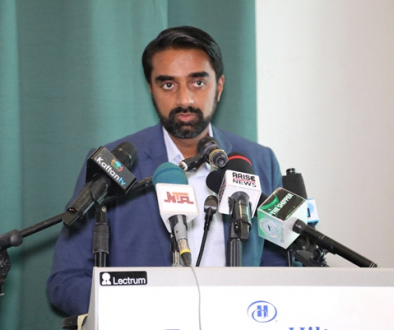Highlights from the Symposium on Funding & Sustaining Anti-Corruption Efforts in Nigeria
The Convention on Business Integrity (CBi) and the INTEGRITY Organization (Limited by Guarantee) held a symposium in Abuja on March 10th, 2016 (10h30 -13h00). The aim of the symposium was to spark a debate on how to effectively fund and sustain anti-corruption efforts in the Nigeria. For the fight against corruption to be effective and far reaching, there needs to be concrete ways of funding, driving and sustaining anti-corruption efforts in Nigeria that complement’s the president’s body language. There needs to be more support from leaders of the business community, all arms of government, civil society and the general public. Extensive deliberations on finding an effective Nigerian response to this global problem are needed. As a former EFCC Chairman once noted, “if Nigeria does not kill corruption, corruption will kill us.”
The symposium was chaired by Prof. Itse Sagay, SAN, Chairman of the Presidential Advisory Committee (PAC) on Corruption. Prof. Itse Sagay also represented His Excellency, the Vice-President of the Federal Republic of Nigeria, Prof. Yemi Osinbajo (SAN) as the Special Guest of Honour. The programme of events started with a welcome address and opening remarks, panel discussions and an interactive (Q&A) session. As Chairman of the occasion, Prof. Sagay explained that the government should lead the way in funding anti-corruption efforts as the government is the greatest beneficiary of any success in the anti-corruption struggle. He proposed a small proportion of the proceeds of recovered assets should be allocated to the Anti-Corruption Agencies (ACAs) to fund their activities. Speaking on behalf of the Vice President of Nigeria, Prof. Sagay spoke on the need to consider and adopt a national strategy to combat corruption. He also dismissed the rumors about the fight against corruption being responsible for the current economic difficulties.
The recommendations from the discussions in Panel 1 (State Actors) surrounded the need for the establishment of a government led Trust Fund to sustain the fight against corruption. There was also general consensus on the need for the government to strengthen ACAs using a % of recovered assets. A call for a clear guiding framework (strategy) with specified medium term goals that directly feed into the broader developmental agenda was also made. Strengthening democracy, creating learning institutions, using evidence based policies, and leveraging community/faith based leaders were some of other recommendations made by discussants in Panel 1. The recommendations from Panel 2 (Non-State Actors) involved the call to use innovation by both private sector and government actors to cut the cost of corruption to a more manageable size. There was also the call to adequately incentivize private sector organizations to invest in anti-corruption efforts, e.g. by cutting corporate taxes or reducing the operational expenses of doing business or via a form of corruption tax. The Chair of the symposium, Prof. Itse Sagay, said he would carefully consider all recommendations from the symposium and present to the PAC.



